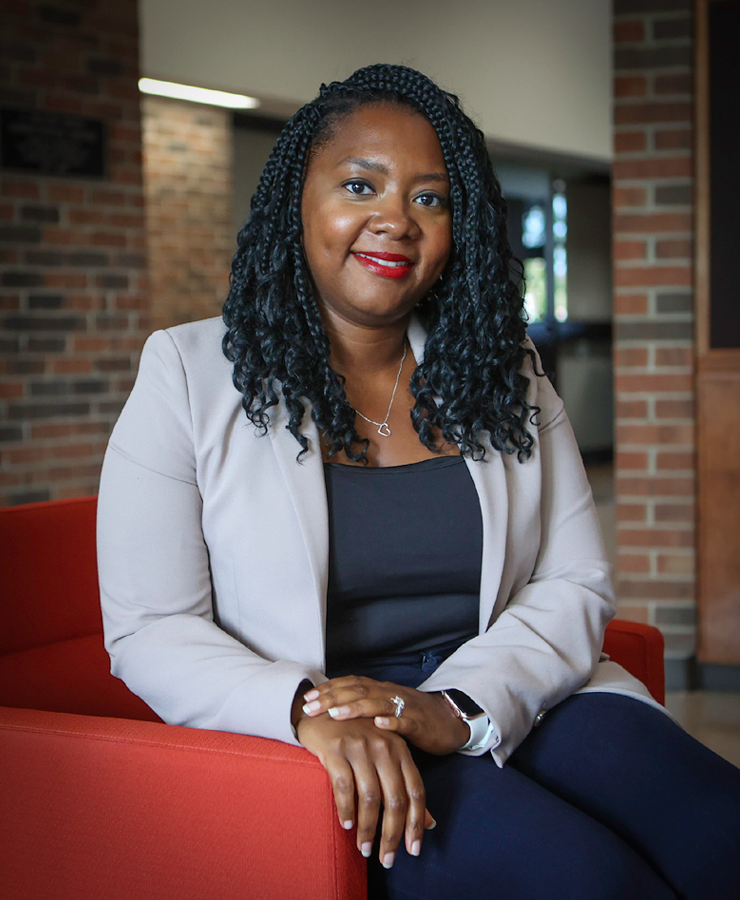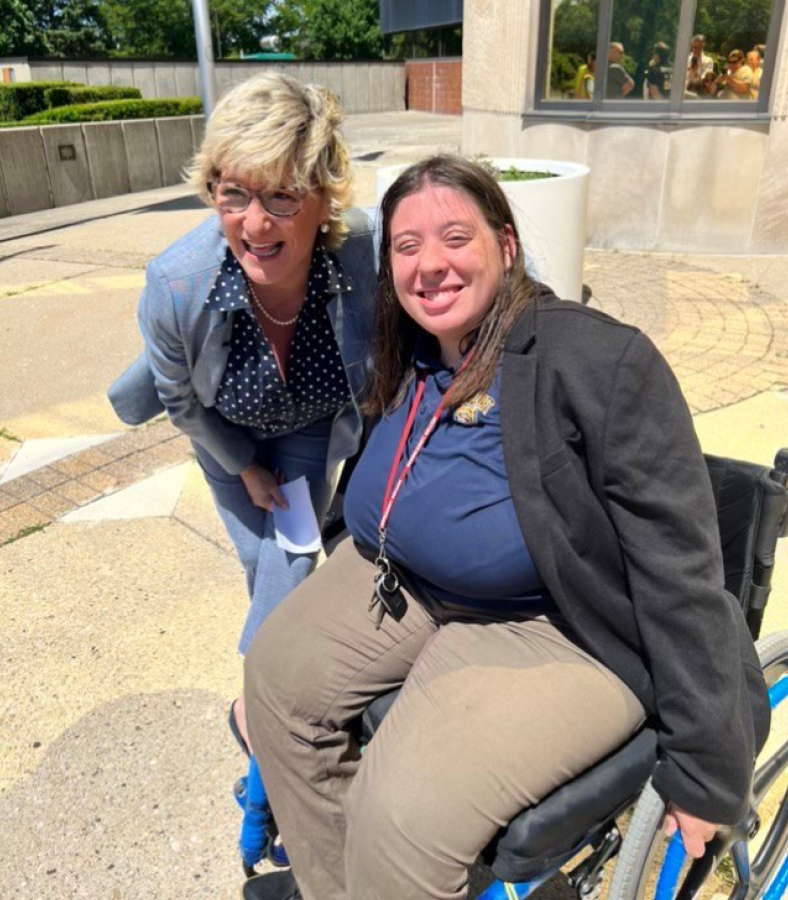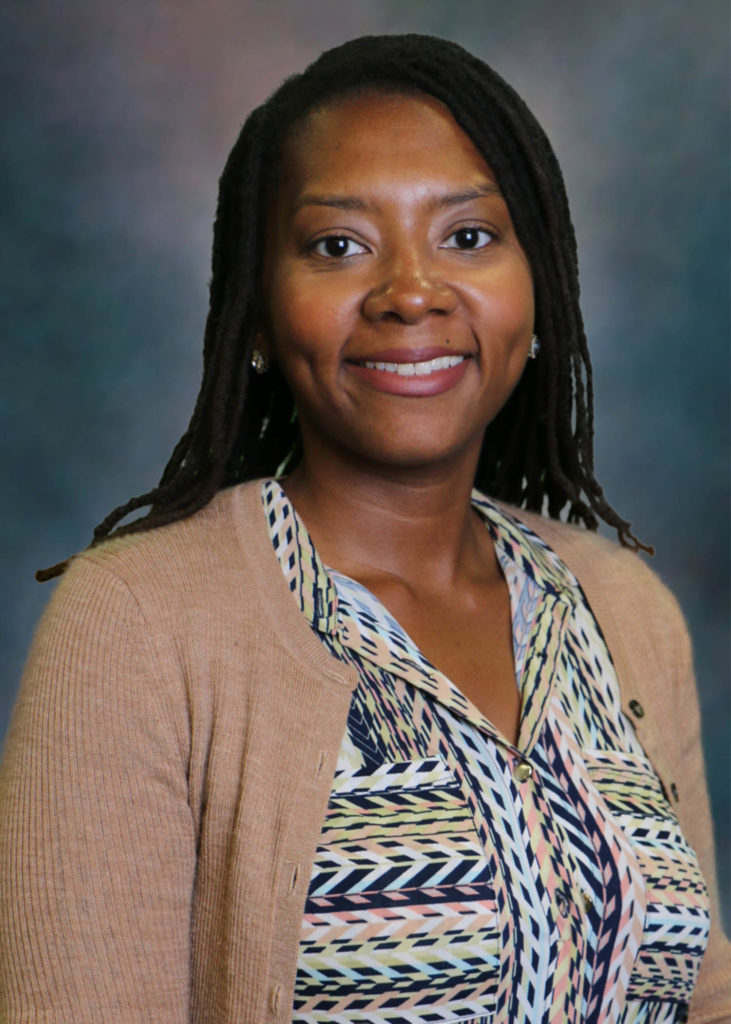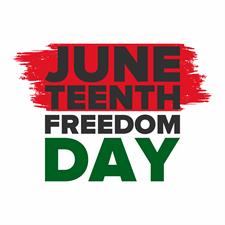To help the Schoolcraft College community better understand, support and engage in the strategic theme of IDEA (Inclusion, Diversity, Equity, and Access), the Office of Equity and Engagement held a launch event in September. The well-attended program in the DiPonio Room of the Vistatech Center – supplemented by an engaged online audience – served as an important starting point to integrate equitable practices into the fabric of Schoolcraft College.
“We were so happy to have so many participating in the IDEA Launch Event and adding their perspectives to how we will move forward in creating a more inclusive campus,” said TaQuilla Kusero, Director of Equity and Engagement. “The event was not only to introduce the goals of IDEA, but to discuss how reaching those goals will take an integrated and structured approach from all of us.”
Also presenting were Catreese Qualls, Research Assistant for the Office of Equity and Engagement; and Dr. Glenn Cerny, President of Schoolcraft College.
What is IDEA?
Here is how Schoolcraft College defines IDEA:
Inclusion
- An environment where individuals are empowered to use their perspectives, experiences, knowledge, and talent to create change.
Diversity
- Psychological, physical, and social differences that occur among any and all individuals; The product/outcome of the inclusive and equitable practices of an organization.
Equity
- Offering individualized support to address barriers that can limit the full participation of an individual or group.
Access
- Students, employees and community members have equitable opportunities to take full advantage of the education, advancement, and resources that we offer and opportunities for similar outcomes.
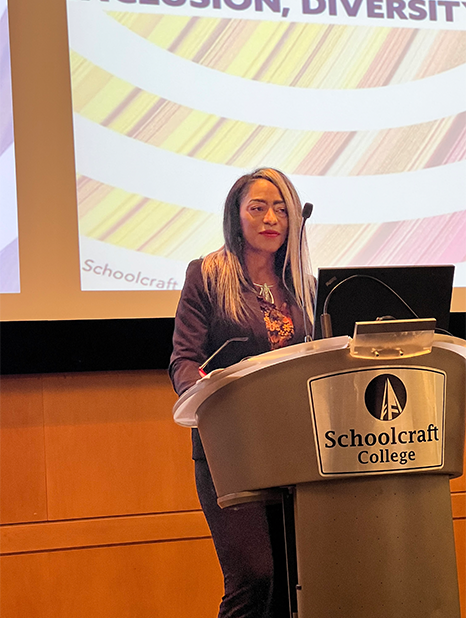
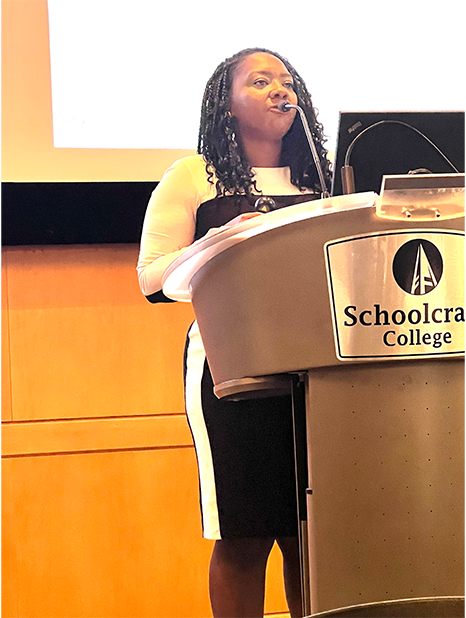
“The launch event was an opportunity to share the mission, expectations, and purpose of creating a culture of inclusion, centrally focused on the IDEA Strategic Theme,” Qualls said. “It was a call to action to every member of our campus community to reimagine the way we think, communicate, and navigate within our respective departments and within our campus community. We must work in tandem to achieve success in creating a legacy of hope for generations to come.”
From these IDEA definitions, the College has created specific objectives to make the vision a reality. Those objectives are:
Objective 1
- Enhance access and success
Objective 2
- Inclusive teaching, learning and scholarship
Objective 3
- Cultural engagement and competency
Objective 4
- Accountability and responsibility
Objective 5
- Fostering community
Those objectives then ladder up to specific areas of focus for the College’s leadership, faculty and staff, and student population, with action and accountability being at the forefront. Kusero noted in her presentation that progress is not always linear, but it should be incremental and measurable.
“Will it be easy to tear down barriers built by decades of broken systems? Absolutely not, but are we capable and authentically inspired to create change? Yes, we are!” Qualls said.
The DEE team noted that the launch event was the catalyst for more leaders to emerge and to encourage a deeply rooted desire to overcome the past and boldly overcome any obstacles by creating access for opportunities to have the uncomfortable conversations needed to push onward and upward.
“This is the first of many collaborations we will have as we begin to do the work of creating equitable outcomes for students, employees, and the communities we serve,” Kusero said.

